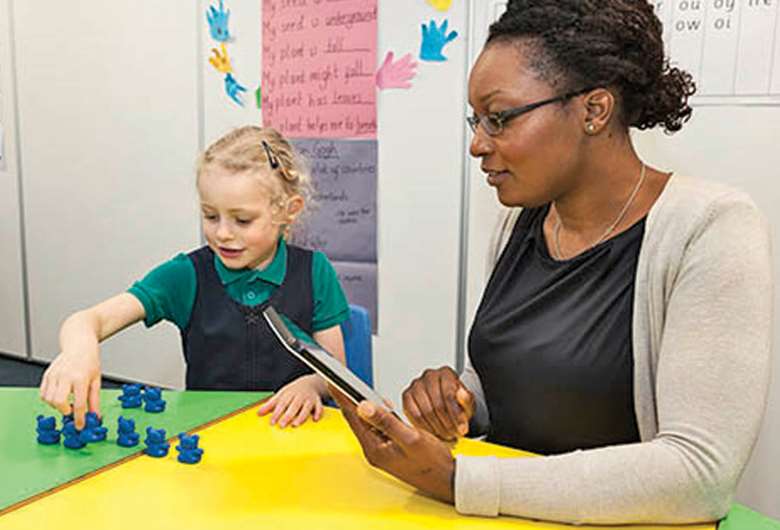Third of schools opposed to new Baseline test, but nearly all plan to implement it
Monday, July 27, 2015
Nearly a third of schools are not in favour of the Reception baseline, new research suggests.

A study commissioned by the Department for Education (DfE), and carried out by the National Foundation for Educational Research, sought the views of schools and parents ahead of the introduction of the new assessment for four-year-olds in September.
While 60 per cent of schools surveyed were 'positive to some extent' about the baseline, 30 per cent were 'not at all' in favour of it. However, almost all planned to implement it, with only ten per cent of schools 'undecided'.
From September 2016, the baseline will be the only measure used to assess the progress of children from entry at Reception to the end of Key Stage 2, alongside an attainment floor standard of 85 per cent.
Just under 300 schools of a sample of 1,000 responded to the survey, and focus groups were held with 47 parents from ten schools. The research was carried out at the end of last year, before the DfE had approved any baseline products.
All of the schools surveyed were already using some form of on-entry assessment and two-thirds were doing this in a formal way. However, just over a quarter (27 per cent) carried out observations only.
'Most schools will face a change in their assessment tool, and some will be using a formal approach for the first time,' the report said.
Research suggested schools currently use the results from on-entry assessments for 'broader uses', to inform teaching and learning practices, target interventions, and validate data from early years providers. The baseline could therefore have implications for assessment practice, teaching and learning and possibly attainment, and teachers may still want to carry out their own assessments for planning, the report said.
More than a quarter of schools would definitely carry out the Reception baseline earlier than previous assessments, and a similar proportion reported that they might do this. This could be due to 'conscious gaming', the report suggested, 'to depress baseline scores and enhance the opportunity for progress.'
'A "gaming" approach could be harmful for learning, if teachers minimise learning opportunities at the start of Reception in favour of concentrating on the administration of the assessment and on keeping scores low at baseline,' the report said.
Variations in how the baseline is administered, and the extent of 'gaming', could have an impact on the reliability of accountability data, and therefore moderation of the baseline, is likely to be important, researchers noted.
Evidence suggests that schools would want to compare their performance with other schools, and there was therefore concern about how the baseline would be quality-assured and moderated.
- Find Reception Baseline Research: views of teachers, school leaders, parents and carers at www.gov.uk.




